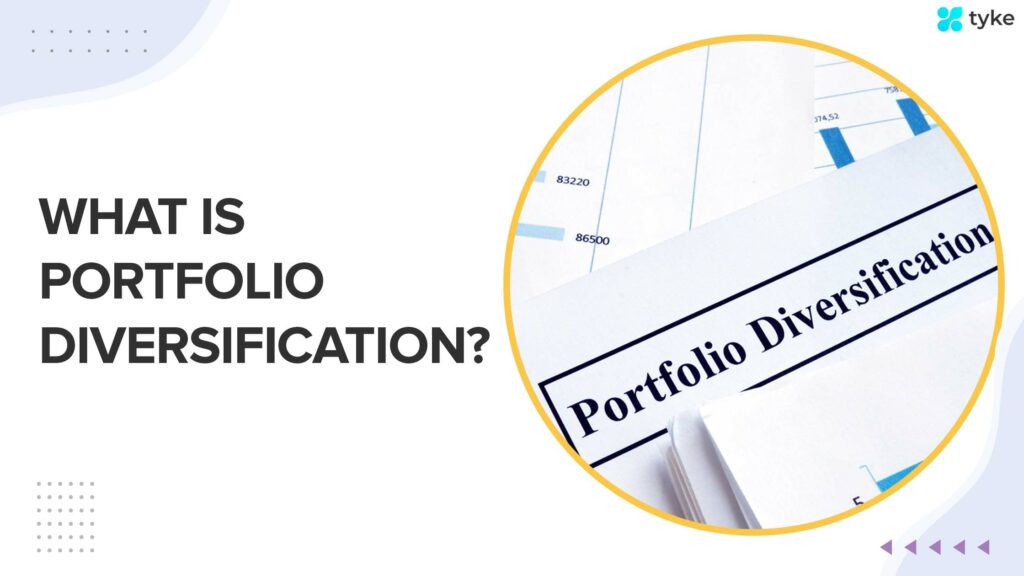Introduction
A startup is a new firm with the potential to find, develop, and validate a profitable business. Due to the number of successful startups in recent years, major industry players are continually looking for new businesses to invest in startups. Investing in startups has undeniable benefits, although some firms fail and bankrupt investors. A startup is a reliable method to earn a return on your investment.
Diversifying your financial portfolio is critical if you want to begin investing. The reasoning behind diversification is simple yet very successful.
At various periods, each asset type acts slightly or dramatically differently. For example, it is thought that gold prices soar when the stock market has a significant downturn. Holding gold in one’s portfolio might protect against a significant drop in equities investment.
This article discusses startup risk, return, and portfolio diversification.
Investing in a startup
A startup is a new firm still in its early phases of development. It is a firm that has yet to be found as a business and is in the early stages of development.
There are several sorts of startups, but one of the most significant is the technology company. A technology startup is a business that focuses on creating new technologies.
Tech firms often invest less than traditional businesses and must frequently obtain additional funds from venture capitalists or angel investors. They are generally longer-term investments, meaning it may take longer to attain profitability and sustainability.
The advantages of investing in startups
Before putting your money into a company, there are a few things you need to know. To begin, funding a business comes with a significant degree of danger. They may have periods of success followed by failure, and their financial future is constantly precarious.
However, there are some significant advantages to investing in startups. Startup enterprises, in particular, can generate new employment and revolutionize how the world conducts business.
If you want to invest in startups, there are a few things you should keep in mind. Primarily, you should be aware of their corporate culture and future aspirations.
Platform to invest in startups India
While there are several platforms for startups and investors, a few notable startup investment platforms have been crucial in investing in some outstanding ideas across various industrial verticals. Many well-known personalities in the startup world have raised cash using these channels.
1. LetsVenture:
Shanti Mohan and Sanjay Jha created LetsVenture in 2013 as an early and growth-stage startup investment platform. LetsVenture is a transparent medium for investors and companies searching for an angel investor or seed investment platform to invest in startups India.
2. AngelList India:
AngelList India is an angel investor network in India that accredited investors use to invest in startups for equity. Investors searching for easy tools and infrastructure to assist them in making better investment choices may utilize this platform to invest in startups.
3. Seedfund:
For those seeking a seed financing startup investment platform, Seedfund is a fantastic alternative. Seedfund has made early-stage investments in various industries, including e-commerce, technology, education, healthcare, and rural marketing.
4. Angel Investment Network:
If you want to invest in a startup investment platform, Angel Investment Network is a great place to start. The Angel Investment Network connects the company with possible investors and assists the business in raising funding. It is also a valuable place for businesses to generate funding systematically by presenting their company concept to the network.
5. WeFounderCircle:
One of India’s most excellent angel investor networks is WeFounderCircle. It is a network of experienced entrepreneurs and angel investors who assist early-stage firms raise financing. WeFounderCircle assists early-stage entrepreneurs in raising seed investments from $100,000 to $150,000. It is one of the top angel investment platforms to invest in startups India, assisting businesses in raising funding and worldwide networking and company growth.
Why should you invest in startups?

With your investment, you get a piece of a privately held corporation.
Your money is traded for equity, a percentage of a company’s ownership and rights to future earnings.
If the firm makes a profit, you get returns proportional to your stake in the company; if the company is sold, you receive a part of the sale price; and if the startup fails, you may lose your investment.
But why would anybody want to invest in startups for equity with a high failure rate and extended holding periods for the firms that succeed?
Privately owned firms, on the other hand, can develop quickly, which means that a winner may provide a 10x return. Furthermore, it is widely known that many businesses remain private for an extended period.
According to FundersClub, waiting to invest in a company after it goes public may result in losing out on 95% of the earnings.
Large global giants such as Google, Apple, and Microsoft began as startups.
In addition to the rewards, companies invest in startups for equity in genuine impact and innovation.
What is portfolio diversification?

Diversifying your assets is one strategy to manage risk and reward in your investing portfolio.
Diversification is the strategy of spreading your assets across many asset classes so that your exposure to any one asset type is minimal. This strategy is intended to assist your portfolio’s volatility over time.
A diverse portfolio’s three key components
1. Domestic securities
Stocks are the most aggressive component of your portfolio and provide the most potential for long-term gain. However, this higher potential for development comes with a more significant danger, especially in the near term. Because stocks are more volatile than other forms of investments, your investment in a stock may be worth less if you decide to sell it.
2. Bonds
Most bonds pay out regular interest payments and are seen to be less volatile than equities. They may also function as a buffer against the stock market’s unexpected ups and downs since they often react differently than equities. Investors prioritizing safety over growth often select US Treasury or other high-quality bonds while minimizing their equity investment. These investors may have to accept lower long-term returns since many bonds, exceptionally high-quality issues, may not provide long-term returns comparable to stocks.
3. Short-term financial investments
Money market funds and short-term CDs are examples of these (certificates of deposit). Money market funds are conservative investments that provide stability and simple access to your money, making them perfect for principal preservation. Money market funds often give lower returns than bond funds or individual bonds in exchange for that degree of safety.
Portfolio diversification has many advantages:
1. As a consequence, market volatility is less noticeable.
A well-diversified portfolio reduces the overall risk associated with the portfolio to the greatest extent feasible. Because investors diversify their investments across asset classes and sectors, the overall impact of market volatility is decreased. Furthermore, spreading assets across many funds ensures that risks connected with specific sectors and businesses are kept to a minimum. As a result, it reduces the chance of danger while increasing the prospect of long-term profit.
2. Using this tool, you may monitor the portfolio less often.
Portfolio diversity is essential since it provides more excellent stability than a single investment because not all assets will experience losses simultaneously. Diversifying your assets may help you save time and money. For example, if you just purchased stock shares, you will spend significant time monitoring market activity and choosing your next steps. Similarly, if you’ve invested in low-risk mutual funds, your main objective will be increasing your returns. Furthermore, your portfolio will need less maintenance.
3. Provides access to a variety of financial resources.
Mutual fund investors may profit from dividing their portfolios by investing in a mix of debt and equity. Similarly, investors who invest in fixed deposits benefit from a guaranteed rate of return and low risk.Even if one fund underperforms, the profits gained by the other funds in the portfolio may more than balance the loss.
4. Contributes to the attainment of long-term investment objectives.
Market volatility positively impacts stock prices, allowing investors to gain higher returns on their investments. Furthermore, if the policy positively impacts debt, the investor will be able to get the most out of mutual funds.
5. Allows you to take advantage of interest compounding.
Investors may benefit from the fund’s compounding interest when selecting a mutual fund as an investment option. It means that each investment will earn income on the principal amount invested and the interest collected over the preceeding years of portfolio investment.
6. It adds to the capital’s security.
Only some investors are willing to gamble on a high-risk venture. Investors approaching retirement or just starting in investing want their portfolios to be stable, and diversification ensures that their assets are safeguarded from market swings. Furthermore, it is a technique for remaining safe in an uncertain financial climate.
Bottom Line
When you invest in startups, you are taking a considerable risk. But why do so many individuals and organizations continue to invest in them? Discover why investing in startups is a wise financial decision.
Despite the high risks, venture capitalists, angel investors, and other groups continue to invest in companies. Although it is a high-risk financial venture, these investments have the potential for high rewards.
On the other hand, investing in assets with high returns is familiar, yet doing so may result in putting all of one’s eggs in one basket. When you invest in high-performing assets, you can purchase them at a lower cost. When considering the risk-return connection, the risk equals the reward.
Having a broad portfolio might be advantageous. While considering the market movement, a diversified portfolio will help distribute financial risks across various instruments and sectors to maintain equilibrium.







